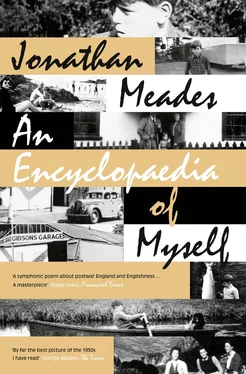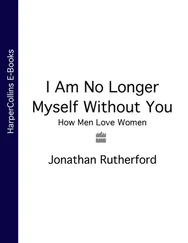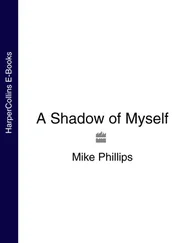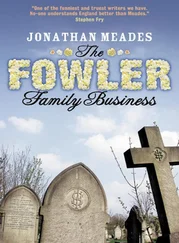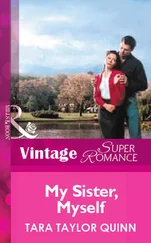‘How did he die?’
Perhaps he pretended to himself that his father had never existed. He had no photo of him. I had furtively pocketed one that I found buried among piles of Picture Post and tobacco tins filled with screws and wingnuts in the shed behind my grandmother’s house in Northwick Road where, equally, he wasn’t on display. It was obvious whom the photo showed – he was the double of his eldest son Harry, my uncle Hank, save that the ambit of his eyes was sooty with disease or fatigue.
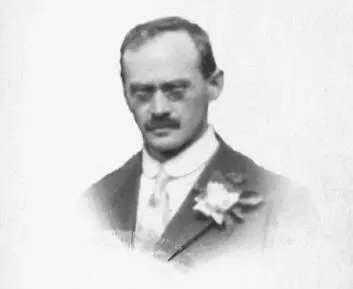
‘Died in the night. Been ill. Grandma told us in the morning.’
My father glared a furious and wounded warning. I knew I must never again ask about, never again even mention my grandfather. And I didn’t.
Was George Meades, as my father had it, a solicitor and Evesham’s part-time town clerk? In Hank’s version he was a solicitor who contributed law notes to the Harmsworth press. I suspect that they had both promoted him out of filial pride. Or out of social shame: they wanted to elevate themselves just as their father, son of a joiner, had wanted to elevate himself by membership of a profession, cynosure of the unimaginatively aspirant. The house in Northwick Road – mean, terraced, dark, no bathroom, outside toilet – was improbably the home of a middle-aged solicitor. And Kitty recalled riding with him across the hills in a dog cart to Chipping Camden where he collected rents, a task more likely undertaken by a solicitor’s clerk rather than a solicitor. In the year of his death he had passed the Law Society’s examinations in trusts, accounting and bookkeeping. Did those successes complete a tardy qualification or was there further struggle and exhausting lucubration to come? With bitchy glee Kitty observed to my then wife that Meades men don’t live long lives. My father once pointed to a double-fronted stucco villa around the corner from Northwick Road near St Peter’s church and ruefully observed: ‘That was where we were just about to move to.’
Further wishfulness? Or was this true? And, if so, was his resentment then worldly, a festering regret about a property denied him, about status unattained? It wasn’t a matter that my father did much to rectify. He had no aptitude for making money, a resigned contempt for those, like Smoothie Derek, who had, and would not own a house till he was fifty-three.
Death was, then, off limits with my father. He told me in a matter-of-fact way that my maternal grandmother had died the previous night as we passed the church at Fugglestone late one Sunday afternoon: I had been sent to the Lush family for the weekend, presumably in anticipation of her death, of whose imminence I had of course not been foretold. ‘Mummy’s upset.’
Charles Wallis, brother of Barnes, married Christine Benn – his first and only, her third (first widowed, second divorced). She cooked Anglo-Indian curries which my father scorned as inauthentic. I was thus obliged to pretend to him that I did not enjoy them. She lived with her two sons in a flat at the top of an Edwardian house overlooking Chafyn Grove School’s lopsided playing fields. The flat below was occupied by a couple with the fine name of Saxon-Harold. Charles was a gentle decent man who rarely shed his crisp white mac. He was amused by my fondness for The Platters’ ‘Smoke Gets In Your Eyes’, a song he recalled from the version in a film of the 1930s. He drowned on his honeymoon trying to save a child in difficulty in a Cornish bay. He was mourned by my father: ‘Christine isn’t taking it too well.’
Anthony, the infant son of my parents’ bent solicitor Eric Broad, had also drowned, early in the war, a few hundred yards upstream from our house. There was little sympathy for his negligent parents who had left him in the garden.
Both the great horn player Denis Brain and the heir to the Sun-Pat peanut butter fortune died at the wheel of sports cars. That was the way to go.
My mother taught Mary N—, the daughter of an army family. In her early twenties, after a brief failed marriage, she took to prostitution in Bristol. She was strangled by a john. My mother, reading a newspaper report, shrugged as though there was an inevitability to that end and that surprise was misplaced although sympathy wasn’t.
Although my mother’s instinct might have been to speak to me about death with qualified candour she acceded to my father’s will. Together they were conjoined in reticence. When alone with me she was slightly more open though hardly voluble. So I developed (or inherited by mimesis) a guardedness in public whilst cultivating a clandestine obsession with the forbidden: if the living reckoned it was that terrible there must be something to it. Like winklepickers, illegitimacy, tinned salmon, canals, hair cream and gross nipples it was a secret vice to be shamefully indulged, guiltily pored over and obviously not admitted. I kept deaths to myself.
Jolyon Spiller. Late August 1957. Richard Griffiths sat down beside me at the Cathedral School swimming pool and told me his father had just been phoned: a fatal bicycle accident in Sherborne. Two years later his father Laurence Griffiths, headmaster of the Cathedral School, was giving me daily lessons during the holiday to remedy my innumeracy. I arrived at his house beside the school at 9.30 sharp. The door was opened by his elder daughter Lilian. She told me that her father was unwell. I learned a few hours later that he had died in the night. Her calm stoicism was extraordinary.
David Hayden. September 1958. It was said that his parents, coach tour operators, never got over the loss of their beefy son whose brother had already died. Alan Moss, elder brother of my contemporary Melodie, was injured and hospitalised. Car crash near Tilshead on Salisbury Plain.
Richard Sturdy. April 1959. He and his father, a Wareham vet, were drowned when their skiff capsized in Poole Harbour. I heard from a friend whom I had run into outside Beach’s bookshop, my de facto alma mater; most of the staff had been taught by my mother and were happy to let me sit on the floor reading for hours on end without pressing me to buy anything.
Seven years earlier, in February 1952, I had been on the very same spot with my mother when she noticed the lowered flag above the Close Gate and realised that King George VI had died. We were on our way to The House of Steps a few yards away. My first act as a New Elizabethan was to eat hot buttered crumpets in that most sinisterly named tea-rooms from whose owner my parents bought my first bicycle when his son Peter Rothwell had outgrown it: a maroon BSA with a curved crossbar, an American design made under licence.
Spiller and Sturdy were my fellow pupils though I hardly knew them. David Hayden was seven years my senior. I have no idea how I met him. But at the age of eleven my aptitude for indiscriminate acquaintanceship was already coming along hummingly.
Since my parents had improbably heard of any one of them during their life I didn’t bother to familiarise them with them now dead. My silence, in these instances, was guiltless.
It was not always so.
A. Hand & Son (groceries, provisions, post office) stood on the corner of Ayleswade Road, Harnham Road and St Nicholas Road, at whose southern end two bridges cross branches of the Avon: the houses between the bridges were often flooded and A. Hand was not immune. As the handle of a high-geared Berkel bacon slicer was turned ponderously the blade rotated at twenty times the speed in an enticingly lethal blur which prompted me to tuck my scrotum between my legs. A spiral staircase rose to a storeroom, and a wooden ladder, smooth as a shove-ha’penny coin, to the highest shelves whose glass-fronted compartments held cotton reels, Kirby grips, pins, needles, decorative combs, Germolene and lint. A wire-mesh screen signified the post office area.
Читать дальше
